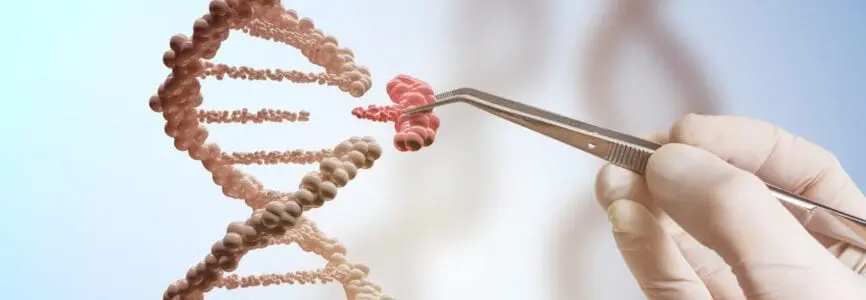Bioethics Forum Essay
Scientists Disagree About the Ethics and Governance of Human Germline Editing
Despite the appearance of agreement, scientists are not of the same mind about the ethics and governance of human germline editing. A careful review of public comments and published commentaries in top-tier science journals reveals marked differences in perspective. These divergences have significant implications for research practice and policy concerning heritable human genome editing.
The current chapter in the debate about the societal and political implications of human germline editing took off nearly four years ago, in response to a laboratory experiment in which researchers in China used CRISPR technology on nonviable human embryos. In March 2015, an article titled “Don’t Edit the Human Germline,” coauthored by scientists and others working on somatic cell genome editing and associated with the Alliance for Regenerative Medicine, appeared in the “Comment” section of Nature. A week later, Science published a “Perspective” commentary coauthored by another group, most of them scientists convened by CRISPR codiscoverer Jennifer Doudna, under the title “A prudent path forward for genomic engineering and germline genetic modification.”
The first article described the “tenuous” therapeutic benefit, and the likely serious risks (including risks to future generations), of germline editing. The authors concluded that this technology was “dangerous and ethically unacceptable,” in part because “permitting even unambiguously therapeutic interventions could start us down a path towards non-therapeutic genetic enhancement.” They further suggested that “a voluntary moratorium in the scientific community could be an effective way to discourage human germline modification.”
In contrast, the second article stressed “the promise of curing genetic disease.” While it concluded that “there was an urgent need for open discussion of the merits and risks of human genome modification by a broad cohort of scientists, clinicians, social scientists, the general public, and relevant public entities and interest groups,” it asserted that the goal of such discussion would be to “enable pathways to responsible uses of this technology, if any, to be identified.” The authors recognized that it would be premature to move forward with human germline genome editing, but studiously avoided any use of the term moratorium.
The lines drawn by those articles persist to this day. In fact, they are prominently on display in a recent set of responses to the self-reported experimentation by He Jiankui in attempting to create gene-edited babies. A Nature editorial published soon after He’s claims went public notes that a system to regulate powerful new genome editing tools “should not start with the assumption that future germline editing is a foregone conclusion.” That, it says, “is a question for society, not scientists, and one that demands the input of different stakeholders from across the world.” Moreover, it advises that “[r]esearchers and physicians must ask permission rather than beg for forgiveness.”
Meanwhile, an editorial in Science, signed by the presidents of three national scientific academies (two in the U.S. and one in China), assumes the very conclusion that others warn about. These authors insist on the need to develop “criteria and standards” for “genome editing in human embryos for reproductive purposes,” and pointedly note that once these criteria and standards are in place, germline editing for human reproduction will be “deemed permissible.” Abandoning the commitment to “broad societal consensus” included in an influential statement issued by the organizing committee of the first International Summit on Human Gene Editing in 2015, they call for “broad scientific consensus” (emphases added).
With this move, they arrogate to those scientists who agree with them the authority to decide whether to proceed with human germline genome editing – no matter that this technology could reshape societies with new divides between genetic haves and have-nots. They make clear that they are committed to voluntary self-regulation, not enforceable public policy – notwithstanding the profound societal shifts that this powerful biotechnology could introduce. Indeed, they write of “nascent efforts” (emphasis added) to “confront the complex ethical and governance issues” raised by human germline modification, thereby ignoring the numerous well-established policies, national laws, and the Council of Europe’s binding international treaty that clearly prohibit human germline modification.
Great caution about the technological capability to alter the traits of future generations is fully compatible with strong support for scientific advances. More specifically, the possibility that human germline modification could trigger dangerously unacceptable societal consequences underscores the need for slow science and for inclusive, unhurried, and truly democratic public discussion and debate about what kind of world we want to live in, and whether that world should include human germline genome editing. In turn, truly democratic public discussion requires stepping back from the downstream and derivative question, “How can we proceed ethically with human germline genome editing?” to squarely confront the logically and ethically prior question, “Is it socially and ethically acceptable to alter the genomes of our children and future generations?” As the Nature editorial puts it, this “is a question for society, not scientists.”
Françoise Baylis is University Research Professor at Dalhousie University. Twitter: @FrancoiseBaylis. Marcy Darnovsky is executive director of the Center for Genetics and Society. Twitter: @c_g_s.
45% of The Hastings Center’s work is supported by individual donors like you.
Support our work.













